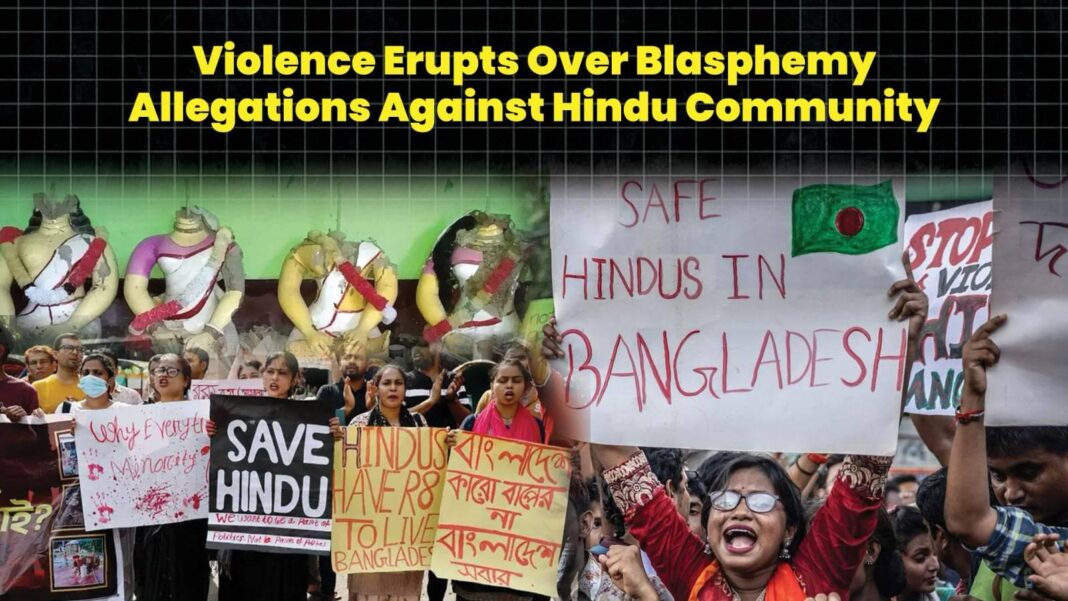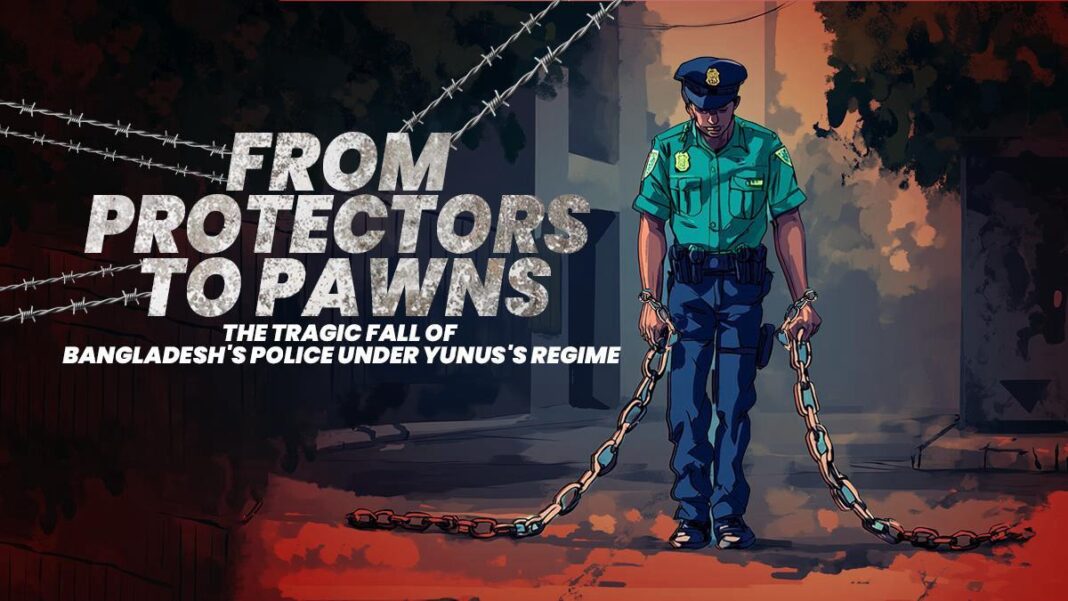Bangladesh is witnessing a dangerous surge in violence targeting the Hindu minority community, following recent allegations of blasphemy against the Prophet Muhammad (SAW). What began as sporadic protests has escalated into organized attacks, fueled by religious extremism and a concerning absence of state intervention.
Since the constitutionally illegal interim government under Muhammad Yunus took power in August 2024, Hindu communities have come under repeated assault, from arrests of religious leaders to mob violence and public threats. In recent days, public unrest has intensified, with protests turning violent and Islamists demanding the death penalty based on unverified claims.
This pattern of persecution under Yunus’s leadership is not only a human rights violation but also a political failure. As the state loses control and mobs dictate justice, the Hindu community is left increasingly vulnerable — and abandoned by the very government meant to protect them.
Blasphemy Allegations Used to Justify Widespread Violence — A Grim Sign of Where the Nation Is Headed
The current wave of violence began with allegations that a Hindu religious figure, Chinmoy Krishna Das Brahmachari, had committed sedition — a charge politically framed under the guise of religious insult. His arrest in Dhaka, following protests led by radical groups, sent a chilling message to the Hindu community. Instead of investigating the credibility of the claims, the interim government under Muhammad Yunus quickly aligned with mob sentiments, denying Chinmoy Krishna Das bail and allowing street agitation to grow unchecked.
The situation worsened when Advocate Ramen Roy, who dared to defend Chinmoy Krishna Das in court, was brutally attacked. His home was ransacked, and he was left fighting for his life in the ICU — a direct assault not just on an individual, but on the rule of law itself. Meanwhile, social media campaigns falsely linked unrelated deaths to the case, fueling further outrage and deepening communal tensions. The violence did not stop there. Adding to the injustice, Hindus in Bangladesh are increasingly being accused of blasphemy without credible evidence, creating an environment of fear and persecution. Yet Hindu homes, shops, and temples have been attacked in the wake of these events. After the Tejgaon protest by Kohinoor Chemical workers, for instance, local Hindus were intimidated and scapegoated, despite the accused individual already being fired and legal action initiated.
These incidents reveal a disturbing trend: the weaponization of religious sentiments to justify lawlessness and collective punishment of minorities.
Yunus’s Rule Marked by Widespread Human Rights Violations and Political Disintegration
The current violence against Hindus in Bangladesh marks a blatant violation of international human rights standards, including the International Covenant on Civil and Political Rights (ICCPR), to which Bangladesh is a signatory.
Bangladesh’s own Constitution, which promises protection for religious minorities, is being trampled with impunity. International human rights organizations, including Amnesty International and Human Rights Watch, have issued strong condemnations, calling attention to the state’s failure to protect vulnerable communities. The UN Human Rights Council has been urged to intervene, as the interim government’s inability—or unwillingness—to curb attacks exposes a terrifying collapse of minority protections.
At the center of this crisis stands Muhammad Yunus, whose constitutionally illegal interim administration has utterly failed in its duty to act as a neutral caretaker. Instead of fostering stability, Yunus’s government appears to be appeasing extremist Islamist factions in a desperate bid for legitimacy. Religion is being weaponized under his watch, with mob violence being tacitly encouraged or deliberately overlooked.
By turning a blind eye to rising extremism and appeasing radical elements, Yunus has shattered the fragile social fabric that held Bangladesh together. The violence against Hindus is not merely a failure of governance—it is a betrayal of the secular, inclusive spirit on which Bangladesh was founded.
Without immediate international intervention and domestic accountability, Bangladesh risks descending further into violence, injustice, and sectarian chaos.





